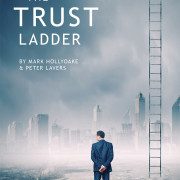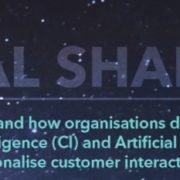2019 – The Growth of Trust as a Core B2B Relationship Driver
“Leadership trust is driven by positive intentions translated and communicated effectively to the people that turn them into reality. The effect and experience is of mutual value benefit and builds long-lasting trust at leadership level”.
Trust the relationship success factor
Trust can take years to develop, yet seconds to lose. Despite this fact trust in business and its customer relationships continues to bump along the bottom of most assessments, surveys, and rankings, as seen in the last Edelman trust barometer which takes the pulse of business trust1, 2018 saw trust undermined from every angle and treated by many organisations in a cavalier manner. Breaches in our data (Facebook, Vision Direct, Cambridge Analytica). Breaches in our trust in the organisation. The Oxfam scandal is just the latest in a long line of outrageous behaviour by individuals and organisations in the 21st century2. Here are a few names I think you will recognise from the top 10 of the biggest corporate scandals; Enron, Volkswagen, Lehman Bros. However, a few of you may not have come across; Valeant Pharmaceuticals, Kobe Steel and Equifax.3
“The reputation of companies operating in the UK has declined for the first time since 2008, says a new report4 that lists which firms have seen their reputations soar and plunge this year”. Here are the top 5 that have seen the biggest reputational decline in that time:
- Delta Air Lines (-11.4)
- Uber (-11.2)
- Ryanair (-10.6)
- LinkedIn (-10.3)
- 888 Holding (-10.1)
Unfortunately, the word trust is banded around with little understanding of what it actually means. Existing explanations are often based on anecdote, mis-specified or misapplied, i.e. B2C thinking applied to B2B. So…let’s put that right from the start.
Make sure you don’t appear on the two lists above and embrace the proactive application of organisational trust!
In B2B trust is defined as:
“The willingness to be vulnerable to another party and the decision to engage in actions based upon an understanding of their ability, credibility and the expectations of mutual value exchange overtime”.
In an air of uncertainty, mis-information and organisations that appear to pursue vested interest ahead of their customers, trust from a customer perspective has never been more important. Trust is a core foundation stone to relationships that customers will expect and actively seek out. Building trust as a success factor takes real leadership often in the face of short term tactical stakeholder coercion and pressure.
In this section I explore how brave leaders can develop trust as the success factor for their organisation. The leader’s role in trust building is focused on establishing the relationship intention (as a customer what can I expect to receive from a relationship with you) So, as a leader be really clear about your organisation’s intentions for the coming year 2019 and how that translates to your customers (current and potential). How the organisation intends to handle uncertainty, yet still create mutual relational benefit. As a leadership team, what are you doing at this stage? You are providing reassurance to your current and potential customers that doing business with you will deliver mutual benefit. However, at this stage, any trust remains intentional in nature and intangible. The leadership team now need to focus on turning the intention into reality. This moves to the development of key success factors proven to develop leadership trust that shift your B2B relationships from intangible to tangible trust.
The first of these is communication as a supporting theme. Clear communication and briefing is crucial and required around what is expected from the organisation in order to deliver on the intentions. – from organisational / leadership level to operations, team and personal level.
It needs to be clear, succinct and accurate. It needs to be consistent across the leadership team, making sure conflicting messages can’t creep in. Don’t communicate an intent you know is unrealistic as it will come back to haunt you and undermine trust development. Make sure the communication from the organisation isn’t just a one off, however features as a continuous and supporting role to intention implementation. Ensure all mediums are used and not just the odd e-mail now and again from the leadership team.
The second is commitment as a supporting theme to the intention implementation. People further down the organisation will question the organisation’s intention in the face of uncertainty, they will ask themselves, “is this really what they want me to do”? Failure to demonstrate commitment from you as a leader and the leadership team could result in parts of the organisation further down reverting back to the known and certain. So….it is vital as leaders you demonstrate commitment to your intentions and the effect from making them a reality.
In essence, communication and commitment are the organisational oil that lubricates the trust engine (trust DNA ™) ; your organisation’s ability (capability and competency) + your organisation’s credibility (ethics, values, integrity and reputation) + working together (joint planning, co-location, co-creation, joint teams) = mutual benefit (the effect you see from turning the organisation/leadership intent into reality)
So, in 2019 brave leaders can develop trust as a key relationship success factor through the commitment to relationship intentions that are clearly communicated and actioned through the organisation. This turns intention into reality and delivers the effect of mutual relationship value. Doing this consistently, time and again in the face of uncertainty will build trust in your organisation and you as leaders with your current and potential customers in 2019.
Sources;
- (Edelman 2018), https://www.edelman.com/trust-barometer
- (https://www.theweek.co.uk/95467/the-biggest-british-scandals-of-the-21st-century)
- (https://www.ig.com/uk/news-and-trade-ideas/shares-news/top-10-biggest-corporate-scandals-and-how-they-affected-share-pr-181101)
- (PR Week April 22 2018 https://www.prweek.com/article/1462722/firms-reputations-risen-2018-plunged)
- Stop hiding behind your computer and get out to see your customers! - March 6, 2024
- B2B Trust Research: What are Boundary Spanners? - January 31, 2024
- A Business to Business Model of Trust - June 27, 2023





